Lazy afternoons in a hammock, iced tea or coffee in one hand, and a big stack of novels on a tree stump next to me: this is kinda how I pictured my month-long sabbatical this summer. Which is why no one was more surprised than me that out of the pile of books I read, most of them were non-fiction.
I’ve been in a fiction phase for several years now, after reading almost exclusively non-fiction for years. I don’t know, I think I just felt burned out from books that either felt like I was taking a class, were preaching to me, or were simply utilitarian in nature. Give me a story — I’ll learn anything better that way (actually, most of us do).
But there was something in me that was drawn to a certain type of book during my break from the internet and work… Perhaps my mind was clearer and I wasn’t looking to escape my life? Not that that’s bad, or that’s the only thing fiction does, but I wasn’t in the market to mentally leave the Pacific Northwest and read about another life. I wanted to dive into my own.
So, here’s what I read on my sabbatical.
Ten Arguments for Deleting Your Social Media Accounts Right Now, by Jaron Lanier
Yes, that’s the full title, and yes, it’s a bit hyperbolic. But it grabs your attention, and it did mine. Lanier is an early Silicon Valley guy and knows a lot about the behind the scenes world of social media, so he makes fairly sound points for why social media isn’t great.
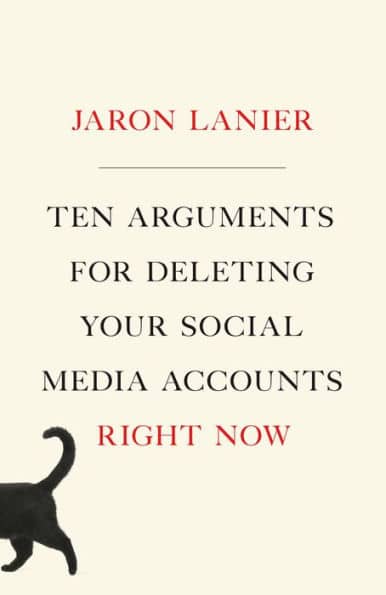
I’m not deleting my accounts, and I think he overlooks some of the real beauty that happens because of the technology, but he’s right about quite a bit of it. There’s language, and it’s not beautifully written, but it’s worth a skim.
3 out of 5 stars ⭐️⭐️⭐️ | Amazon | B&N | Indie
Burnout, by Emily & Amelia Nagoski
Written by sisters, this book explains why women experience burnout differently than men, and what we can do about it. Beth Silvers recommended it, and why I asked her if she thought it’d be a good sabbatical read, she answered with an emphatic YES!

The best part of the book is the beginning, when they explain the stress cycle and how we need to complete it regularly — and that most of us don’t, which is why we have residual, ongoing stress. It was genuinely helpful to have something I already kinda knew framed this way.
I wasn’t as in love with the rest of the book, but I read it quickly and that was enough for me. I’m not sure it’s required reading for all women, but if you’re feeling chronically stressed even if you practice regular self-care or make room for margin, you’d benefit from some of the applicable science here. I did.
3 out of 5 stars ⭐️⭐️⭐️ | Amazon | B&N | Indie
The Ocean at the End of the Lane, by Neil Gaiman
What can I say? Gaiman is a master storyteller, and this short novel is peak Gaiman. It’d been on my TBR list for ages, so I decided to save it for Literary London, when we’d be staying in a little English village (the book is set in the English countryside).

It’s a delightful blend of fantasy with humanity, which is what Gaiman does best. Dark, strange, a little creepy, but thoughtful. It was fun.
4 out of 5 stars ⭐️⭐️⭐️⭐️ | Amazon | B&N | Indie
Rivals!, by Scott McCormick
We listened to this audiobook in the car as a family, and it was a fun listen for my kids’ ages (9-14). Four 30-minute histories about grudges throughout history that eventually changed the game in a particular field, it’s easy to listen to and provides a few laughs (and a few annoying sound effects).
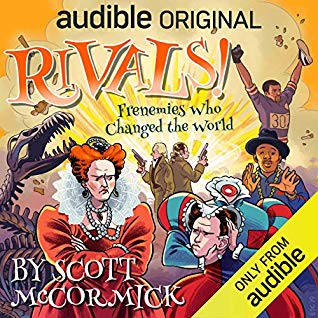
Two rivals are well-known (Mary, Queen of Scots vs. Queen Elizabeth; Hamilton vs. Burr), but two were new to me (the brothers who invented both Adidas and Puma, and two early paleontologists who discovered dinosaur fossils). Easily digestible and fun to talk about, just ignore the dumb jokes and slight overuse of sound effects.
3 out of 5 stars ⭐️⭐️⭐️ | Amazon
The Tech-Wise Family, by Andy Crouch
I’d had this book on my Kindle for awhile now (yes, there’s irony to having this as a digital copy), but I’d completely forgotten until I saw a paperback copy at a friend’s house early in my sabbatical. So, I pulled it up and dove in, and I’m so glad I did.
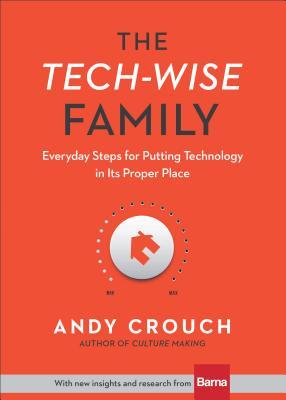
It’s a quick read, but it gave me plenty to think about. Andy Crouch doesn’t say a ton I didn’t already know, but he frames it well with his family’s ten commitments. Plus, it’s well-written — I’m a fan of his work.
I’ve got lots more to say about this book in this week’s podcast episode, so stay tuned.
5 out of 5 stars ⭐️⭐️⭐️⭐️⭐️ | Amazon | B&N | Indie
How to Do Nothing, by Jenny Odell
I wanted to like this book — the cover is so pretty, and the subtitle is Resisting the Attention Economy. It has its place, but ultimately, this book is a collection of essays about our societal-wide attention spans and why things like capitalism and art make it easier or harder to engage with the world. It was heady.
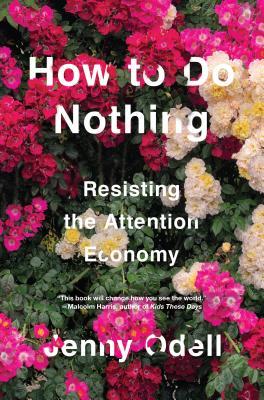
The title is misleading, because it’s not a how to do anything sort of book. It’s a collection of philosophical essays, and to be honest, it could have been shortened by half and I’d still skim it. It’s somewhat interesting, but eventually it sounds as though she’s writing because she wants to sound smart. I couldn’t finish it.
2 out of 5 stars ⭐️⭐️ | Amazon | B&N | Indie
A Fatal Grace, by Louise Penny
Book 2 in the Inspector Gamache series, I’m slowly working my way through this beloved mystery series set in a small town outside Montreal.
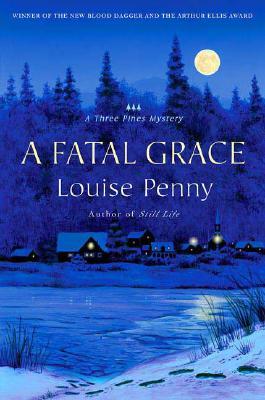
I enjoy the setting, the characters, and the whodunnit-ness, but these books aren’t as well-written as I’d like. They’re fun, but the descriptions sometimes make my eyes roll.
But if you love mysteries, they’re worth reading, and I hear the books get better. It’s a big series (24 books and counting, I believe), and I don’t doubt that a number of you are already fans. I did enjoy this one more than the first, Still Life.
3 out of 5 stars ⭐️⭐️⭐️ | Amazon | B&N | Indie
The Mystery of Alice, by Lee Bacon
Another audiobook we listened to as a family, this one is performed as a video diary from the protagonist who’s trying to solve several mysteries that all boil down to her new friend and housemate, Alice. My kids enjoyed the story, and I did think the narration was excellent.

It reads like a Disney channel-esque TV movie for tweens, so make sure you suspend your belief as an adult before diving in. The entire time I listened my thought was, these are supposed to be middle schoolers?! These characters are more like upperclassmen in high school, possibly even young college students. I’m not sure Bacon has spent much time with 13-year-olds.
2 out of 5 stars ⭐️⭐️ | Amazon
Why We Get Fat, by Gary Taubes
I’m not sure why I decided to read this book when I did (see my opening thoughts here, I suppose), but I’m glad I did. This heavily-researched book explains what I already knew was true from my own life: weight gain isn’t about calories in, calories out.

I loved the history he presents, as well as the global case studies; these sections were more fascinating to me as a right-brained type than some of the heady anatomical explanations. I’m glad they’re there, though; I read the science slowly until I could understand it because I wanted to. I also appreciated his explanations as to why some of us struggle with weight gain more than others; why we can eat healthier than our counterparts and they stay thin and we struggle with seemingly-instant gain.
This is not a how-to guide or diet book, this explains the why behind what actually works. Read this, then apply how you choose. I found it fantastic.
5 out of 5 stars ⭐️⭐️⭐️⭐️⭐️ | Amazon | B&N | Indie
Lessons From Lucy, by Dave Barry
I’d had this on hold for months at my library, so it was fun that it became available on my sabbatical. Another audiobook (purposely chosen because I enjoy Barry’s reading), this is a lighthearted comedy memoir with heart.

Our family has become dog lovers, thanks to our adoption of Ginny a few years ago, so this was up our alley. It’s not really about dogs, though, and it’s not really a kids or family book — Barry is now 70, so it’s mostly about his reflections on life and what he’s learned as he’s aged. He filters it through the lens of how to apply his wisdom gained from his old dog, Lucy.
It’s a sweet book (though we skipped a chapter, simply because of younger ears), and if you’re a fan of dogs and dad jokes, you might enjoy this when you need something light.
3 out of 5 stars ⭐️⭐️⭐️ | Amazon | B&N | Indie
Homegoing, by Yaa Gyasi
This was the last — and best — book I read on my sabbatical, and I can’t stop thinking about it. I’d read the first few chapters several years ago, then had to return it to the library because of life busyness. I”m so glad I picked it up again.
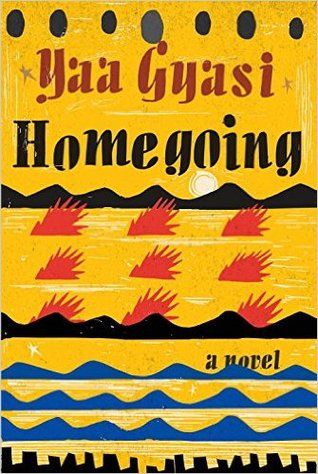
This description serves it well: “A novel of breathtaking sweep and emotional power that traces three hundred years in Ghana and along the way also becomes a truly great American novel.” Gorgeously written and a primo example of ace storytelling, this novel is required reading, in my opinion. Dark and difficult-to-read moments at time, but they’re necessary.
Really… so, so, so good.
5 out of 5 stars ⭐️⭐️⭐️⭐️⭐️ | Amazon | B&N | Indie
I read a lot on my month away, which was one of my early hopes for my sabbatical — here they are as a list on Goodreads, if you’d like a quick rundown.
What have you read this summer?
p.s. Here’s also what I read this year in April, March, February, and January.
• Listen to the podcast episode about this post



